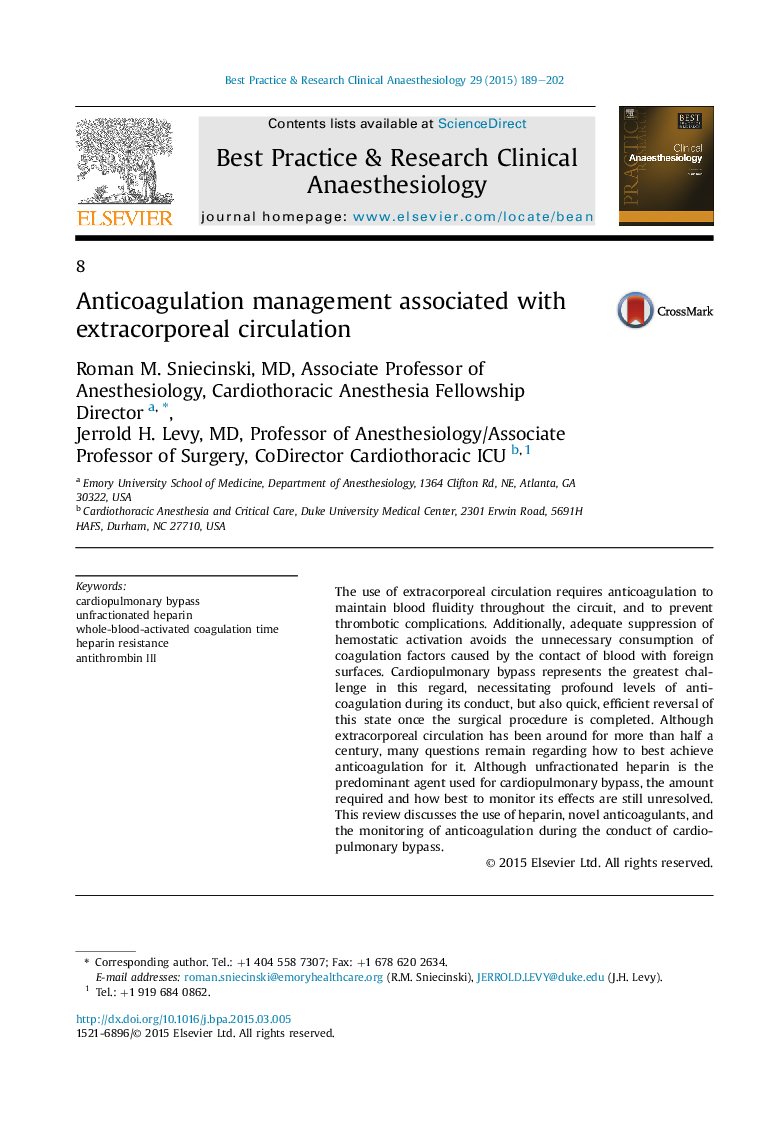| Article ID | Journal | Published Year | Pages | File Type |
|---|---|---|---|---|
| 2748374 | Best Practice & Research Clinical Anaesthesiology | 2015 | 14 Pages |
The use of extracorporeal circulation requires anticoagulation to maintain blood fluidity throughout the circuit, and to prevent thrombotic complications. Additionally, adequate suppression of hemostatic activation avoids the unnecessary consumption of coagulation factors caused by the contact of blood with foreign surfaces. Cardiopulmonary bypass represents the greatest challenge in this regard, necessitating profound levels of anticoagulation during its conduct, but also quick, efficient reversal of this state once the surgical procedure is completed. Although extracorporeal circulation has been around for more than half a century, many questions remain regarding how to best achieve anticoagulation for it. Although unfractionated heparin is the predominant agent used for cardiopulmonary bypass, the amount required and how best to monitor its effects are still unresolved. This review discusses the use of heparin, novel anticoagulants, and the monitoring of anticoagulation during the conduct of cardiopulmonary bypass.
